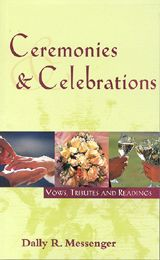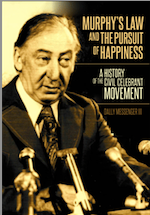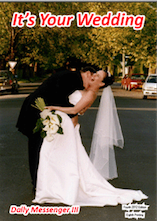Readings - Poetry and Prose for Funerals -2
With some contributions by Celebrant Doris Nolan.
Most of the poems below are not subject to copyright.
The ones subject to copyright are published for students and studying graduates of the College of Celebrancy.  The following poems have been contributed byMark O'Connor,himself a notable poet, and one of our most distinguished Celebrants and Graduates.
The following poems have been contributed byMark O'Connor,himself a notable poet, and one of our most distinguished Celebrants and Graduates.
(Note: any celebrant can use any poem in any ceremony as ceremonies-as-performances are categorised as "domestic".)
Please note the following for very few:-
COMMONWEALTH OF AUSTRALIA
Copyright Regulations 1969
Warning. This material has been reproduced and communicated to you by or on behalf of the INTERNATIONAL COLLEGE OF CELEBRANCY
pursuant to Part VB of the Copyright Act 1968.
The material in this communication may be subject to copyright under the Act.
Any further reproduction or communication of this material by you may be the subject of copyright protection under the Act.
Dirge without Music by Edna St Vincent Millay
I am not resigned to the shutting away
of loving hearts in the hard ground.
So it is, and so it will be, for so it has been,
time out of mind:
Into the darkness they go,
the wise and the lovely.
Crowned
With lilies and with laurel they go;
but I am not resigned.
Lovers and thinkers, into the earth with you.
Be one with the dull, the indiscriminate dust.
A fragment of what you felt, of what you knew,
A formula, a phrase remains, --- but the best is lost.
The answers quick & keen, the honest look,
the laughter, the love,
They are gone. They have gone to feed the roses. Elegant and curled
Is the blossom. Fragrant is the blossom.
I know.
But I do not approve.
More precious was the light in your eyes
than all the roses in the world.
Down, down, down into the darkness of the grave
Gently they go, the beautiful, the tender, the kind;
Quietly they go, the intelligent, the witty, the brave.
I know.
But I do not approve.
And I am not resigned.
Nothing Gold Can Stay by Robert Frost
(perhaps for a child's funeral.)
Nature's first green is gold,
Her hardest hue to hold.
Her early leaf's a flower;
But only so an hour.
Then leaf subsides to leaf.
So Eden sank to grief,
So dawn goes down to day.
Nothing gold can stay.
Traditional Gaelic Blessing: (Anon)
May the road rise up to meet you.
May the wind be always at your back.
May the sun shine warm upon your face;
The rains fall soft upon your fields
and until we meet again,
May God hold you in the palm of His Hand.
Longing by Matthew Arnold
(Perhaps for a child's or a lover's funeral?)
Come to me in my dreams, and then
By day I shall be well again!
For then the night will more than pay
The hopeless longing of the day.
Come, as thou cam'st a thousand times,
A messenger from radiant climes,
And smile on thy new world, and be
As kind to others as to me!
Or, as thou never cam'st in sooth,
Come now, and let me dream it truth;
And part my hair, and kiss my brow,
And say: My love! why sufferest thou?
Come to me in my dreams, and then
By day I shall be well again!
For then the night will more than pay
The hopeless longing of the day.
from 'A Song of Living' Amelia Josephine Burr (1878 - ?)
Because I have loved life, I shall have no sorrow to die.
I have sent up my gladness on wings, to be lost in the blue of the sky.
I have run and leaped with the rain,
I have taken the wind to my breast.
My cheek like a drowsy child
to the face of the earth I have pressed.
Because I have loved life,
I shall have no sorrow to die.
SISTER OF THE MOON by Mark O'Connor
(Poem, or Song for lyric soprano; Aboriginal theme)
I am the cousin of the crow
and sister of the moon
The ghostmen stalked upon my land
two hundred years ago.
At last my son stood in their path
they spoke, and with a thunder-clap
they killed him with a hidden stone.
They killed him with a hidden stone.
But then they camped on sacred earth
and dug the graves our spirits owned:
we knew the ghostmen were our own
returning to home ground.
We saw beneath their death-white skins
the cheek-bones of my cousin's son,
and my own father from the grave
walking in the hot sun.
I ran towards him in the day
calling above the land we own.
He spoke, and entered in my heart
to kill me with a hidden stone.
To kill me with a hidden stone.
I am the spirit of this land;
I walk in leprous white.
I am the cousin of the crow
And sister of the night.
How Did You Die? by Edmund Vance Cooke
Did you tackle that trouble that came your way
With a resolute heart and cheerful?
Or hide your face from the light of day
With a craven soul and fearful?
Oh, trouble's a ton, or trouble's an ounce,
Or a trouble is what you make it.
And it isn't the fact that you're hurt that counts,
But only how did you take it?
You are beaten to earth? Well, well, what's that?
Come up with a smiling face.
It's nothing against you to fall down flat,
But to lie there - that's disgrace.
The harder you're thrown,
why the higher you bounce;
Be proud of your blackened eye!
It isn't the fact that you're licked that counts;
It's how did you fight and why?
And though you be done to death, what then?
If you battled the best you could;
If you played your part in the world of men,
Why, the critic will call it good.
Death comes with a crawl,
or comes with a pounce,
And whether he's slow or spry,
It isn't the fact that you're dead that counts,
But only, how did you die?
How He Died by Ernest Howard Crosby
So he died for his faith. That is fine.
More than most of us do.
But stay. Can you add to that line
That he lived for it, too?
It is easy to die. Men have died
For a wish or a whim -
From bravado or passion or pride.
Was it harder for him?
But to live; every day to live out
All the truth that he dreamt,
While his friends met his conduct with doubt,
And the world with contempt.
Was it thus he plodded ahead,
Never turning aside?
Then we'll talk of the life he led.
Never mind how he died.
Sonnet 71 by William Shakespeare
(Use this great but very personal poem only if it is very suitable!)
No longer mourn for me when I am dead
Than you shall hear the surly sullen bell
Give warning to the world that I am fled
From this vile world with vilest worms to dwell:
Nay, if you read this line, remember not
The hand that writ it, for I love you so,
That I in your sweet thoughts would be forgot,
If thinking on me then should make you woe.
O! if, I say, you look upon this verse,
When I perhaps compounded am with clay,
Do not so much as my poor name rehearse;
But let your love even with my life decay;
Lest the wise world should look into your moan,
And mock you with me after I am gone.
Sonnet 73 by William Shakespeare
(Might be used on the death of one of a deeply attached couple)
That time of year thou mayst in me behold
When yellow leaves, or none, or few, do hang
Upon those boughs which shake against the cold,
Bare ruined choirs, where late the sweet birds sang.
In me thou see'st the twilight of such day
As after sunset fadeth in the west;
Which by and by black night doth take away,
Death's second self, that seals up all in rest.
In me thou see'st the glowing of such fire,
That on the ashes of his youth doth lie,
As the death-bed, whereon it must expire,
Consum'd with that which it was nourish'd by.
This thou perceiv'st, which makes thy love more strong,
To love that well, which thou must leave ere long.
O Captain! My Captain! by Walt Whitman
(For the death of a father?)
O Captain! my Captain! our fearlful trip is done;
The shop has weather'd every rack, the prize we sought is won;
The port is near, the bells I hear, the people all exulting,
While follow eyes the steady keel, the vessel grim and daring:
But O heart! heart! heart!
O the bleeding drops of red,
Where on the deck my Captain lies,
Fallen cold and dead.
O Captain! my Captain! rise up and hear the bells;
Rise up - for you the flag is flung - for you the bugle trills;
For you bouquets and ribbon'd wreaths--for you the shores a-crowding;
For you they call, the swaying mass, eager faces turning;
Hear Captain! dear father!
This arm beneath your head;
It is some dream that on the deck,
You've fallen cold and dead.
My Captain does not answer, his lips are pale and still;
My father does not feel my arm, he has no pulse or will;
The ship is anchor'd safe and sound, its voyage closed and done;
From fearful trip, the victor ship, comes in with object won;
Exult, O shores, and ring, O bells!
But I, with mournful tread.
Walk the deck my Captain lies,
Fallen cold and dead.
Life's Growth from Embryo Voyage by Mark O'Connor
Past follicle, sorter of joys,
down fallopian, pathway of fate
into the humming, the bees-nest of sperm's
brief promiscuous surf, then the one clear bell
for that long monogamy, self.
In the long-prepared ark, self throbbed against self,
awaiting the light, and what feeds or consumes
self's sweet million-celled veal.
The yolk in the amnion
frail to a jolt,
packed to devour a world.
I Never Lost as Much Emily Dickinson
I never lost as much but twice,
And that was in the sod.
Twice have I stood a beggar
Before the door of God!
Angels, twice descending,
Reimbursed my store.
Burglar, banker, father,
I am poor once more!
I Many Times Thought by Emily Dickinson
I many times thought peace had come
When peace was far away,
As wrecked men deem they sight the land
When far at sea they stay.
And struggle slacker, but to prove,
As hopelessly as I,
That many the fictitious shores
Before the harbor lie.
Credo
I would rather be ashes than dust!
I would rather that my spark should burn out
in a brilliant blaze than it should be stifled by dry-rot.
I would rather be a superb meteor, every atom
of me in magnificent glow,
than a sleepy and permanent planet.
The function of man is to live, not to exist.
I shall not waste my days trying to prolong them.
I shall use my time.
Jack London
The Tide Rises, the Tide Falls
The tide rises, the tide falls,
The twilight darkens, the curlew calls;
Along the sea-sands damp and brown
The traveler hastens toward the town,
And the tide rises, the tide falls.
Darkness settles on roofs and walls,
But the sea, the sea in darkness calls;
The little waves, with their soft, white hands
Efface the footprints in the sands,
And the tide rises, the tide falls.
The morning breaks; the steeds in their stalls
Stamp and neigh, as the hostler calls;
The day returns, but nevermore
Returns the traveler to the shore.
And the tide rises, the tide falls
Henry W. Longfellow
The Abiding Remorse
We were two cranes, each broken-winged,
that hopped and panicked in the dust
till welded, seamless, rib to rib,
we sprang with equal, matchless strokes
to glide above the circling clouds
beyond the glance of counsellors,
perfect, alone, in company.-
So wrote the Emperor
of plump Kwei Fei, whose blood
his generals poured in dust, whose love
cost him and China everything.
Despised and hobbling on the earth,
his patient brush stroked out these lines,
still unrepenting.
(Quasi-translation by Mark O'Connor 2004)
(Note:
The story of the 8th century Tang emperor Xuan Zhong and his perfumed concubine Yang Kwei Fei (or Gui Fei) is famous in China. The poem is loosely based on a couplet from the Tang dynasty poet Bai Juyi's The Abiding Remorse.)
On Accepting Death
In this biological world we can see clearly that death is a stage in the life cycle. In our human case, we cling to the precious consciousness that seems to set us apart from the rest of the natural world, and we see death with different eyes - as an ending, often cruel, and sometimes unendurable.
We do ourselves no service to make an enemy of death; it is a presence within our life, and by denying it, we deny a part of ourselves. Our deepest knowledge includes a knowledge of death. To experience loss and to grieve it are the great common experiences, and to deny them is to make ourselves less human.
We live in a beautifully balanced system in which death is a part of everything that lives. The pain of our personal loss is ours; within the greater whole, nothing is lost. Perhaps it is too much to say that we will ever understand death; the fruit of time and pain and healing is that we will come to accept it.
Karen Kasey Martha Vanceburg
Extinction of the Huia
Melodious as its Maori name, the gentle Huia bird seems a fowl lost from an ancient bestiary.
Always in pairs, their life one long low liquid interchange,
they rarely flew, but hopped and probed in deepest thickets
preening and balancing, antiphonal.
They fed upon the luscious huhu grub
under mossed and lichened podocarps
--fed and hopped so lovingly together
that if a Maori noosed one bird, its mate would come to hand.
Working together, joint custodians, His straight crow-bar beak
and Her thin curving probe, utterly unlike, conjoined
to winkle out tree-eating grubs.
Never widespread or numerous, their superb sober Finery made funeral-plumes for centuries
until Cook visited. The stuffed ones soon
were -musts- for lounge-rooms, though few knew how well their natures fitted these strange bills.
Charmed by his captive pair, Buller records how native know-how and the foreign gun took in 600 skins from a week's work
--most of the world's remaining stock:
-Now safely on the increase-.
A common bird today in Auckland's antique shops, its loving notes that ranged from purest whistles to what seemed a puppy's whining call, are gone, lost,
all before the age of tapes and films.
And our museum has one --that is, of course, a pair.
Mark O'Connor
For E.J. Banfield
('Beachcomber' of Dunk Island)
(for a conservationist's funeral)
What are my strenuous weeks of visit
to this man's thirty years --
his time to muse with shoals and tides
pipe-lost on every log and headland,
to praise the pawpaw and the pomelo
swooning in drunk, bat-fossicked flowers,
to plant the mangosteen and litchi. I see
his hand, pressed to a rough-hewn table,
turn the light nectar of a season
to the honey of considered prose.
A journalist, half blind and warned of death,
who hired the world's loveliest island
in days when the great Reef lay nowhere
on the possessable globe --he became
the serene prose-singer of Coonanglebah's sands
and lord of the tide-linked islands; one
of a pair who bred no clan, and sought
no wealth, learning through love
that Aboriginal trick, to leave the land
beyond their life untouched.
Mark O'Connor
FUNERAL LOVE POETRY
(Suggested by Doris Nolan)
RUTH 1: 16-17
Ask me not to leave you,
or to return from following you.
For where you go, I will go.
Where you lodge, I will lodge.
Your people shall be my people
and your God, my God.
Where you die, I will die
and there will I be buried.
May the Lord do so to me,
and even more,
If anything but death,
part you from me
(Suggested by Melissa Halliday)
Joyce Grenfell (1910-1979)
Life Goes On
If I should go before the rest of you,
Break not a flower nor inscribe a stone
Nor when I'm gone speak in a Sunday voice
But be the usual selves that I have known.
Weep if you must,
Parting is hell,
But life goes on,
So Sing as well.
You can Shed Tears That She is Gone
You can shed tears that she is gone
Or you can smile because she has lived.
You can close your eyes and pray that she'll come back
Or you can open your eyes and see all she's left.
Your heart can be empty because you can't see her
Or you can be full of the love you shared.
You can turn your back on tomorrow and love yesterday
Or you can be happy for tomorrow because of yesterday.
You can remember her and only that she's gone
Or you can cherish her memory and let it live on.
You can cry and close your mind, be empty and turn your back
Or you can do what she'd want: smile, open your eyes
Love and go on.
Ceremonies - all |
History |
Marriage Ceremonies |
---=

